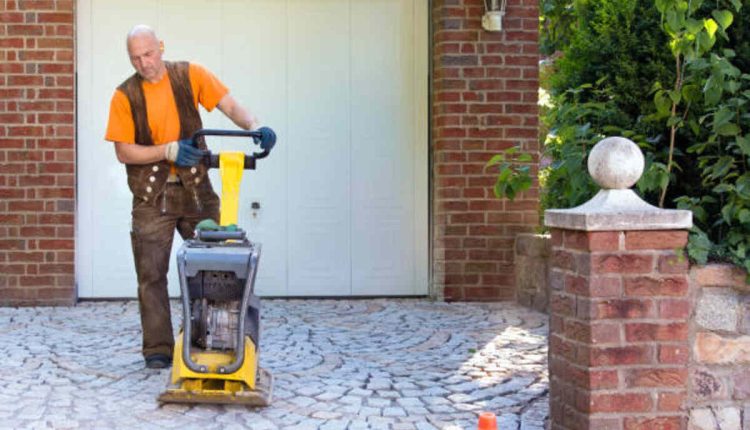Asphalt pavement surfaces have long been an integral component of modern infrastructure, providing durable roads, parking lots, and driveways with smooth surfaces that last. When properly maintained and constructed, their lifespan can be extended considerably. The best way to find the Asphalt companies in Pittsburgh.
Finding the ideal material for your project can save money in the long run. Discover more about asphalt paving costs as compared to concrete alternatives.
Cost of Materials
Material costs are an essential component of any asphalt paving project. Asphalt is comprised of various raw materials, including aggregates (crushed stone, sand, and gravel) and bitumen; their prices often fluctuate based on factors like mining costs, transportation expenses, and supply and demand in the construction industry.
Labor costs play a large part in asphalt paving costs. Labor rates can fluctuate based on location, union agreements, and project complexity; skilled workers may also be needed to operate and maintain any necessary heavy machinery required for such endeavors.
Asphalt pavements can be laid more quickly than other paving materials, helping reduce overall project costs. This is due to asphalt being ready for immediate use versus concrete, which must dry and cure before vehicles can drive on it.
Porous asphalt, which allows water to seep through its surface and into the road or driveway, can help lower asphalt paving costs significantly. Ideal for areas that experience frequent rainfall, this form of pavement helps prevent frost heaves while improving drainage; additionally, it reduces traffic noise by reflecting less of its sound from trucks and cars; finally, it is 100% recyclable without emitting greenhouse gases.
Cost of Labor
Asphalt is an economical and long-lasting material, providing vehicles with a smooth driving surface. Maintenance costs are low, with cracks or potholes easily repaired when they appear. Furthermore, asphalt can be recycled after its lifespan has ended to help save natural resources while reducing waste production.
Labor costs associated with asphalt paving projects can differ considerably depending on their complexity. If, for instance, your driveway features multiple curves or sits atop a hillside, this work will take longer and require more labor. Furthermore, extra services like stump grinding or tree removal will increase costs significantly.
Labor costs depend heavily on your proximity to an asphalt production plant since special trucks and equipment are required to transport materials over longer distances, making longer journeys more costly than planned. Furthermore, asphalt is a petroleum product, so its price can fluctuate in tandem with oil prices.
Before asphalt can be laid down, it must be adequately prepared. This requires extensive labor to clear away vegetation, excavate holes, compact the ground, and compact any deposits from excavation. Proper preparation is crucial because, without it, the asphalt won’t last as long and must never be laid on wet ground, as this would result in failure and sticky flooring that requires additional labor to install.
Cost of Equipment
Asphalt paving requires special equipment to heat, mix, and lay the material. Contractors then need heavy rollers to compact it for a better result and eliminate voids while guaranteeing structural integrity – this may take several days and is critical to its durability. Once compacted asphalt has cooled and set before traffic can return to it.
Asphalt pavement is composed of an aggregate material such as crushed rock and sand mixed with a binder to hold everything together, most commonly bitumen, but with other recycled or bio-based binder options also being available.
Equipment selection is crucial to the success of an asphalt project. Contractors should carefully consider their long-term business goals as well as the current size and scope of projects when making this choice. For instance, if workload increases are expected in the future, investing in machines capable of handling larger loads and higher productivity rates might be wise investments.
Contractors should carefully consider their financing options when selecting asphalt equipment leasing solutions. While purchasing equipment upfront can be prohibitively costly, leasing can help spread out initial investments over time. Leasing companies prefer working with established businesses that can demonstrate on-time payments and a strong credit history; however, it’s still possible for newer companies to secure asphalt equipment leasing agreements.
Cost of Permits
Asphalt paving is a cost-effective and popular option for both residential and commercial properties, yet many homeowners don’t understand its exact implementation process or the cost associated with installation.
Beiler Brothers Asphalt wants to help you gain a greater understanding of asphalt pricing, the reasons behind price variations in the mix, and what it takes for a successful project. Please use the information here as a general guideline when planning your paving projects.
Success for an asphalt paving project hinges on various elements, including site inspection, materials selection, and permit approvals. A successful inspection should include inspecting existing pavement conditions, drainage issues, or any other potential concerns on-site. When selecting materials, it is also essential to take weather conditions, traffic loads, and aesthetic preferences into consideration.
Permitting can require hiring an inspector, particularly if your work will affect existing utility lines. Permits may add to the total cost of your project as well.
Asphalt is a dark-colored, gritty material used for building roads, parking lots, airport runways, rail tracks, and sidewalks. Asphalt consists of aggregates such as crushed stone, sand, and gravel bound together by bitumen binder; depending on its use, other chemical admixtures may also be added for increased durability and performance.


